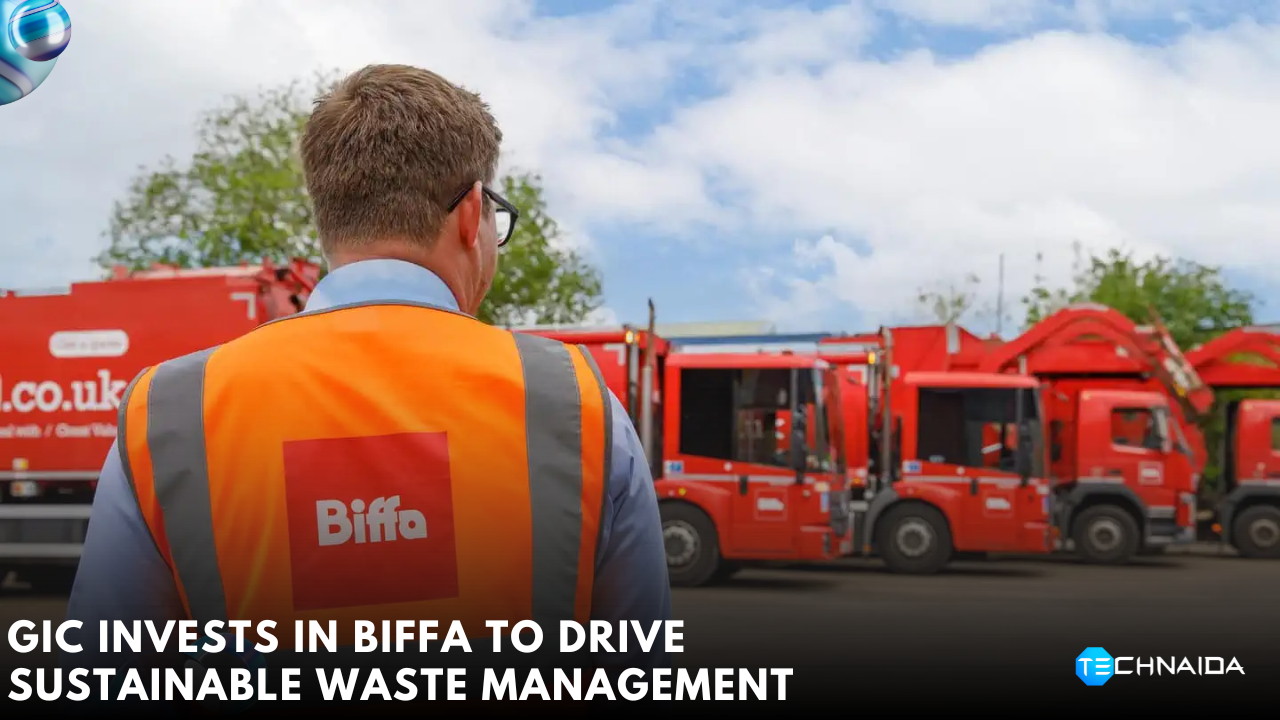BUSINESS
GIC Invests in Biffa to Drive Sustainable Waste Management

Introduction to GIC and Biffa
In a significant move for both the global financial and waste management sectors, GIC, a sovereign wealth fund from Singapore, has made a major investment in Biffa, one of the UK’s leading waste management companies. This strategic partnership is making headlines, not only because of its size but also due to the growing importance of sustainable waste management solutions in the face of increasing environmental concerns.
But what led GIC to invest in Biffa? And how will this impact both companies and the waste management industry as a whole? In this article, we’ll take an in-depth look at the details surrounding GIC’s investment in Biffa and its broader implications.
Background of GIC’s Investment Strategy
GIC, short for Government of Singapore Investment Corporation, is known for its diverse investment portfolio across various industries worldwide. With over $440 billion in assets under management, GIC is one of the largest sovereign wealth funds in the world. GIC’s investment strategy focuses on long-term value creation, and they have shown significant interest in sectors that are critical for sustainable development, such as technology, real estate, and infrastructure.
Historically, GIC has also been interested in environmental, social, and governance (ESG) factors, making the waste management industry a natural fit for their investment goals. They aim to align their investment strategy with global sustainability trends, which adds context to their interest in Biffa.
Overview of Biffa
Founded over 100 years ago, Biffa has grown into one of the UK’s most prominent waste management companies. Biffa offers services ranging from recycling, collection, and treatment of waste to complex resource recovery processes. The company operates over 100 sites across the UK, serving both businesses and households. Recently, Biffa has emphasized sustainability, positioning itself as a leader in recycling and circular economy practices.
Biffa’s commitment to sustainability has made it a key player in reducing waste sent to landfills, increasing recycling rates, and contributing to a zero-waste economy. These goals align well with GIC’s investment priorities.
GIC’s Motivation for Investing in Biffa
So why did GIC choose to invest in Biffa? One of the primary reasons is the increasing demand for sustainable waste management solutions globally. The waste management industry is rapidly evolving, with governments and corporations worldwide recognizing the need to transition to more eco-friendly waste practices.
For GIC, investing in Biffa represents a strategic opportunity to support a company that plays a critical role in managing waste and protecting the environment. With the global focus on reducing carbon emissions and moving towards a circular economy, waste management is no longer a back-burner issue—it is a central pillar of sustainable development.
Details of the Investment
While the exact financial figures of GIC’s investment in Biffa have not been publicly disclosed, reports suggest that it is a substantial minority stake, giving GIC a significant influence over the company’s future direction. This move is expected to accelerate Biffa’s growth, particularly in areas related to recycling technologies and innovations in waste processing.
Furthermore, this investment sets the stage for possible future expansions or additional capital injections, signaling GIC’s commitment to long-term growth in the waste management sector.
Impact of the Investment on Biffa
GIC’s investment will likely provide Biffa with the financial resources it needs to continue its ambitious expansion plans. This could include opening new waste treatment facilities, investing in cutting-edge recycling technologies, and expanding its market reach both in the UK and beyond.
Moreover, with GIC’s backing, Biffa is expected to enhance its efforts toward achieving sustainability goals. Biffa may also explore entering new markets or developing innovative waste management solutions that address growing environmental challenges.
GIC’s Broader Environmental and Social Impact Goals
GIC has long emphasized the importance of ESG factors in its investments. By partnering with Biffa, GIC is not only investing in a financially sound business but also in a company that is at the forefront of tackling one of the world’s most pressing environmental challenges: waste management.
This move fits squarely within GIC’s broader efforts to support businesses that prioritize environmental responsibility and social impact. As the global waste problem grows, solutions from companies like Biffa will become increasingly critical.
The Role of Waste Management in Global Sustainability
Waste management is crucial in the fight against climate change and environmental degradation. Companies like Biffa play an essential role in diverting waste from landfills, promoting recycling, and ensuring that materials are reused in ways that benefit both the economy and the environment.
With increasing attention being paid to the circular economy, where materials are reused and recycled rather than discarded, waste management companies are becoming more vital than ever.
How This Investment Impacts the Waste Management Industry
GIC’s investment in Biffa is likely to have ripple effects across the waste management industry. Competitors may need to step up their innovation efforts to keep pace with Biffa’s newfound resources and capabilities. Additionally, this partnership could spur further investments in the waste management sector as investors realize the importance of this growing industry.
Challenges GIC and Biffa May Face
Despite the many opportunities presented by this partnership, both GIC and Biffa could face challenges. Regulatory hurdles in the waste management industry, fluctuating market conditions, and potential operational issues could all pose risks. However, with their combined resources and expertise, GIC and Biffa are well-positioned to tackle these challenges.
Opportunities for Growth in the Waste Management Sector
The waste management sector is ripe for innovation. With advancements in recycling technology, the push for zero-waste initiatives, and growing global awareness of environmental sustainability, there are significant opportunities for growth. GIC’s investment in Biffa positions both companies to capitalize on these opportunities.
Conclusion
The investment by GIC in Biffa is a pivotal moment for both companies and the broader waste management industry. This partnership aligns financial growth with sustainability goals, presenting a blueprint for future collaborations in industries that are essential for a more sustainable world.
